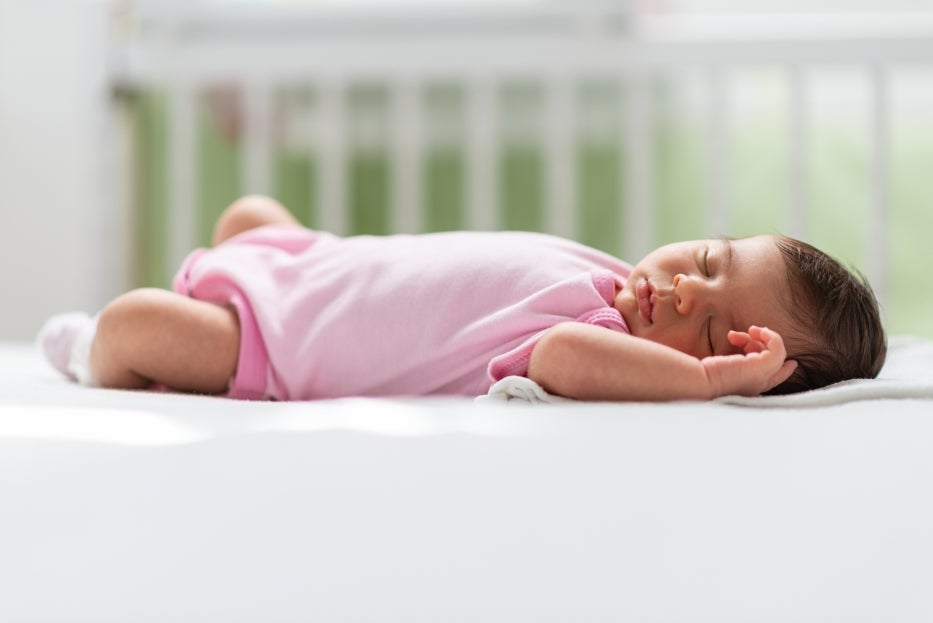
This is never an easy topic. SIDS, or Sudden Infant Death Syndrome, is when an infant one year or younger dies an unexplained death during sleep. There is nobody to blame for this type of death, but there are safe sleep guidelines that do reduce the risk of SIDS. Newborns can sleep up to 16 hours a day, so they spend much of their time sleeping. They sleep in three to four hour increments and need to eat often, but added all together, they sleep most of the day. It is important to keep the sleeping area for your baby as safe as possible.
Always place your baby on her back to sleep. If she is old enough to roll over in her sleep, you don’t need to move her again. Do not place baby on her side or tummy or use any type of wedge or prop. Place the baby on a firm mattress (one that does not sink when the baby is placed on it) on her back. You want your baby to be warm, but not too warm. She only needs one layer more than an adult would wear in the same temperature. Breastfeeding your baby reduces the risk of SIDS. You may feed your baby expressed breast milk from a bottle for the same safe sleep benefits.
Studies show that your baby will sleep better in the same room as you, but it is not recommended by the American Academy of Pediatrics to sleep together. The baby may lay next to the person breastfeeding. If you and your partner choose to do this, place your baby, on her back, in her own sleeping quarters free from extra padding, blankets, pillows or stuffed animals. Babies that sleep close to, but not with their parents have 50% less risk of SIDS. If you imbibe or smoke, it is very important that you do not sleep with your baby. Alcohol, smoking and other medications may make it harder for you to wake up. This can increase the risk of SIDS. If your baby falls asleep in a carrier or car seat, move her to a firm mattress, on her back, as soon as possible.
This material is not meant to scare parents and caregivers, only to educate them. A few safe practices can make a big difference in your stress level as well. You will know you are doing everything you can to keep your baby as safe as possible while she sleeps, regenerates and rejuvenates her little, miraculous body. This is a lot of information to take in, so just remember Baby Sleep ABC’s. Babies should sleep Alone, on their Back and in a Crib. Don’t forget the little kisses you can leave on their fingers, toes and head.
For further inquiries about safe sleep, please speak with a pediatrician. You may call Lovelace Care Concierge 505.727.2727 for help finding a pediatrician or any other Lovelace provider.
References
- https://www.marchofdimes.org/baby/safe-sleep-for-your-baby.aspx
- https://www.healthychildren.org/English/ages-stages/baby/sleep/Pages/A-Parents-Guide-to-Safe-Sleep.aspx
- Blue Cross Blue Shield




